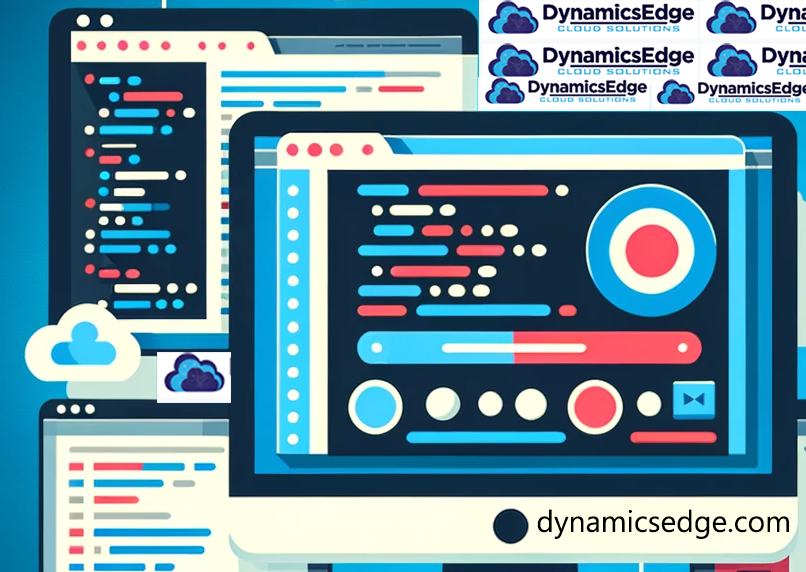Salesforce is quite known from some time as a leading cloud-based Customer Relationship Management (CRM) platform.

Salesforce. Designed to bring companies and customers together – integrating various aspects of your business. These include sales, service, marketing, and commerce. Salesforce provides tools for managing customer interactions, tracking sales, automating marketing processes, and much more. And all of this is centralized in a user-friendly, cloud-based environment.
Salesforce Classic is the original interface of the Salesforce platform and it’s characterized by its straightforward, no-frills design as well as functionality. Bespoke Salesforce Classic training on how it’s been the backbone of Salesforce CRM for many years, providing you essential CRM features and tools. It’s well-known for its stability, reliability and has a familiar interface for long-standing Salesforce users. Salesforce Classic custom training can go over these and much more.
Salesforce Lightning is the newer, modernized version of the Salesforce interface. It was introduced to provide a much more intuitive, responsive, as well as efficient user experience. Bespoke Salesforce Lightning training can include topics on enhanced features, what are better customization options, and what accounts for a much more visually appealing interface. Learn to leverage Salesforce Lightning custom training that’s designed to boost productivity as well as provide a more seamless experience for managing your customer relationships and your business processes.
Apex in Salesforce is a quite powerful, object-oriented programming language that isused in Salesforce platform for custom application development. Bespoke Salesforce Apex training can help understand how it allows developers to write and execute flow and transaction control statements on Salesforce servers along with calls to the API. Apex is particularly useful for creating complex business logic as well as workflows that go beyond the capabilities of standard Salesforce configuration.
Whereas, Visualforce is actually a framework that enables the creation of custom user interfaces in Salesforce. It is a tag-based markup language, quite similar to HTML actually, which can be used to design elaborate, tailor-made user interfaces for you. Bespoke Salesforce Visualforce training on pages can include how to write Apex code to implement complex logic and interact with the database backend including in your specific scenarios.
Imagine “Global Rentals,” who is a thriving car rental company that’s looking to enhance its Salesforce implementation. Now suppose they are considering using Apex and Visualforce for a specific project.
Global Rentals wants to optimize their vehicle allocation system. They really need a solution to match their customer preferences with available vehicles more efficiently as well as provide custom rental offers based on customer history and vehicle availability. The current Salesforce configuration doesn’t fully accommodate for the complex logic required in this very customized allocation and offer system. Now, the company needs a more tailored approach so they could handle these specific business rules. How should they know to use Apex, or VisualForce in this scenario?
Apex would be more ideal for writing the complex business logic needed to analyze customer history, vehicle availability, as well as to generate custom offers. That’s because it can process this data on the server side and also execute the intricate algorithms required for this task.
Visualforce would be more suited for creating a custom user interface, perhaps for the company’s customer service representatives so they can view and manage these custom offers. It could also be done for customers to view their offers, such as on a custom portal.
So which one should they go with here?
In this case, Apex is probably the better fit for creating complex business logic. With Apex, Global Rentals can implement a sophisticated system that also automatically generates personalized rental offers, efficiently allocates vehicles, and even optimizes their inventory management.
By successfully implementing this Apex-based solution, Global Rentals can expect improved customer satisfaction due to many more personalized and relevant rental options. Increased efficiency in vehicle allocation. An enhanced ability to upsell and cross-sell services too based on customer preferences and history. A more streamlined process for managing offers as well as vehicle availability, which leads to better resource usage.
While Visualforce could also be used to enhance the user interface parts of this solution, processing complex business logic and data would be likely best addressed with Apex here. If they wanted to use both, perhaps the combination of Apex for backend logic and Visualforce for frontend presentation could also provide a comprehensive solution for Global Rentals’ needs.
Have a Question ?
Fill out this short form, one of our Experts will contact you soon.
Call Us Today For Your Free Consultation
Call Now